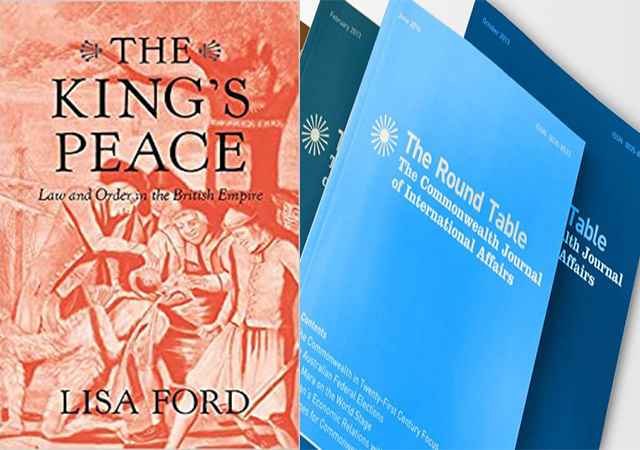
[This is an excerpt from an article in The Round Table: The Commonwealth Journal of International Affairs.]
Although it deals with a historical theme, there are at least two ways in which this book can be related to contemporary happenings and thus given a measure of relevance to our times. Firstly, it has the potential to contribute to aspects of the increasingly fractious debates on the rights and wrongs of colonialism; secondly, it offers an opportunity to interrogate, through a look backwards, certain arguments on the perennial difficulties all governments face when balancing, on the one hand, the needs of security and public order, and, on the other, the personal liberty of those subject to their jurisdiction.
Ford’s overarching thesis, based on her conviction that ‘[t]he majesty of 19th-century empire was grounded in increasingly illiberal rules and practices of order performed by largely unaccountable servants of the crown’ (p. 231), is that, the American Revolution marked a turning point in British attitudes to liberty and justice for its overseas subjects. The fruits of the Glorious Revolution, she argues, were sacrificed at the altar of colonial expediency, with a single-minded focus on the maintenance of peace and order in deeply-divided and boisterous distant lands, which led to a growing divergence between colonial and metropolitan law.
Her analysis takes in events in Boston (USA), Montreal (Canada), Trelawny Town (Jamaica), Hooghly (India) and the Australian state of New South Wales between 1764 and 1836. Each of those jurisdictions presented the colonial masters in London with particular challenges, but Ford identifies certain common threads in the way those challenges were addressed. She sees these situations essentially as ‘a series of contests about who got to keep the peace over whom and where’ (p. 3) and, based on a worldview in which there is little room for any acceptance that the imperial enterprise, however flawed, might have had some redeeming features, arrives at the broad conclusions outlined above.
Few would quarrel with the description, in factual terms, that the author offers of the nature and impact of British rule in various corners of the world:
The challenge of keeping the peace among Protestants, Catholics, slaves, Indians, free Black people, and convicts in the varied landscapes of the eighteenth- and early 19th-century British Empire reframed white and nonwhite colonial subjecthood in different ways. In doing so, it altered the constitution of empire. This happened, not at the level of juridical abstraction, but through the interface of crises of order, everyday ideology, and practice[p.16].
But were all the peace-keeping measures that were adopted – and which Ford excoriates with unrelenting passion – the result of a pre-meditated diabolic plan hatched by a cabal of imperialist schemers? Highly unlikely, many would say. No less importantly, were not a large number of those measures, however imperfectly conceived or executed, justified by the local conditions existing in many of the colonies – to which Ford herself alludes in her narration, albeit with qualifications – e.g., the presence of ‘arsonists, looters, and rioters’ in Boston [p. 224] or the ‘ungovernability’ of Bengalis’ in India [p. 225]? Ford’s analysis can also be faulted for not paying sufficient attention to the civilising influence of English law in many of the colonies, especially in relation to certain social evils which were rampant at the time, e.g., suttee (the burning of Hindu widows with their husband’s corpses) in India or cliterodectomy in East Africa.
Another critique that can be made of the thesis advocated by Ford is that, while the influence of colonial laws and approaches to peace-keeping in many of Britain’s former possessions cannot be denied, it is highly arguable that all the present-day ills in those countries can be laid at the doorstep of their imperial masters.
Venkat Iyer is the Editor of the Round Table Journal.
The King’s peace: law and order in the British Empire by Lisa Ford, Cambridge, MA, Harvard University Press.



